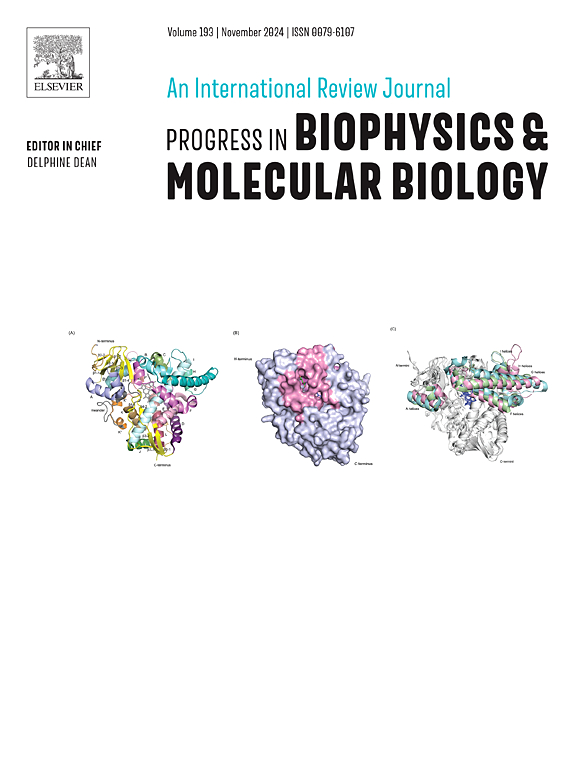Myelin: A possible proton capacitor for energy storage during sleep and energy supply during wakefulness
IF 4.5
3区 生物学
Q2 BIOCHEMISTRY & MOLECULAR BIOLOGY
Progress in Biophysics & Molecular Biology
Pub Date : 2025-03-28
DOI:10.1016/j.pbiomolbio.2025.03.001
引用次数: 0
Abstract
There are several physiological reasons why biological organisms sleep. One key one concerns brain metabolism. In our article we discuss the role of metabolism in myelin, based on the recent discovery that myelin contains mitochondrial components that enable the production of adenosine triphosphate (ATP) via oxidative phosphorylation (OXPHOS). These mitochondrial components in myelin probably originate from vesiculation of the mitochondrial membranes in form from mitochondrial derived vesicles (MDVs). We hypothesize that myelin acts as a proton capacitor, accumulating energy in the form of protons during sleep and converting it to ATP via OXPHOS during wakefulness. Empirical evidence supporting our hypothesis is discussed, including data on myelin metabolic activity, MDVs, and allometric scaling between white matter volume and sleep duration in mammals.
髓磷脂:一种可能的质子电容器,用于睡眠时的能量储存和清醒时的能量供应。
生物有机体睡眠有几个生理原因。其中一个关键因素与大脑代谢有关。在我们的文章中,我们讨论了代谢在髓磷脂中的作用,基于最近的发现,髓磷脂含有线粒体成分,能够通过氧化磷酸化(OXPHOS)产生三磷酸腺苷(ATP)。髓磷脂中的这些线粒体成分可能起源于线粒体膜的囊泡形成,其形式是线粒体源性囊泡。我们假设髓磷脂充当质子电容器,在睡眠时以质子形式积累能量,并在清醒时通过OXPHOS将其转化为ATP。本文讨论了支持我们假设的经验证据,包括哺乳动物髓磷脂代谢活性、mdv和白质体积与睡眠时间之间的异速缩放数据。
本文章由计算机程序翻译,如有差异,请以英文原文为准。
求助全文
约1分钟内获得全文
求助全文
来源期刊

Progress in Biophysics & Molecular Biology
生物-生化与分子生物学
CiteScore
8.60
自引率
7.90%
发文量
85
审稿时长
85 days
期刊介绍:
Progress in Biophysics & Molecular Biology is an international review journal and covers the ground between the physical and biological sciences since its launch in 1950. It indicates to the physicist the great variety of unsolved problems awaiting attention in biology and medicine. The biologist and biochemist will find that this journal presents new and stimulating ideas and novel approaches to studying and influencing structural and functional properties of the living organism. This journal will be of particular interest to biophysicists, biologists, biochemists, cell physiologists, systems biologists, and molecular biologists.
 求助内容:
求助内容: 应助结果提醒方式:
应助结果提醒方式:


